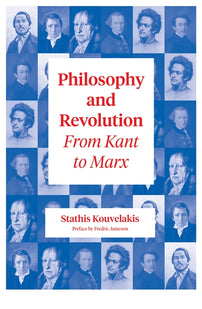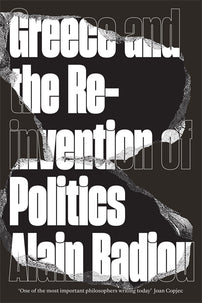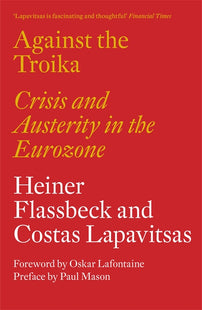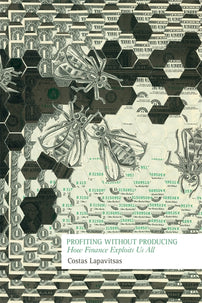The Radical Left: The Time for its Re-founding
After 4 years in power, SYRIZA were defeated in both recent elections, finishing behind the conservative New Democracy party in each. In this article written in the wake of the European election but before the results were announced of the legislative election, two leading members of the Greek left Costas Lapavitsas and Stathis Kouvelakis reflect on the reasons for SYRIZA's defeat and what it would take for the radical left to once more win power.

The turn towards the Right
The results of the recent European elections were the natural outcome of SYRIZA's disgraceful capitulation in the summer of 2015. SYRIZA did not face the immediate outcry experienced by previous Memorandum Governments. On the contrary, the Third Memorandum was accompanied by social passivity that eventually brought about a turn towards the Right, and indeed a tough neo-liberal version of it, driving the Left in its entirety toward paths that are difficult to tread.
This shift is not a Greek exception. Along the length and breadth of Europe, all variants of the Left are at historically low levels. The major victor is the European Far Right, purporting to be an "anti-systemic" actor, capitalizing on the anger of societies wounded by decades of neoliberalism. The rise of the Far Right demonstrates the loss of the Left’s radicalism, its transformation into a manager of a system that is now systematically and unconditionally unmaking a century’s worth of social gains. The bonds between the Left and the working and popular classes, once its natural base, have been broken.
What is original in the Greek case is that a party of the classical conservative faction, New Democracy, is on the cusp of returning to power. The forthcoming parliamentary elections are certainly not the same as the European elections, but they will also formally signal the close of the cycle opened in the squares in the summer of 2011. It is indeed evident that SYRIZA is unable to articulate a political discourse with elementary persuasiveness. Its electoral message is that it has a program that will produce "growth" alongside "fiscal stability" and "social justice". The government and the prime minister have once more become radicals, prepared to clash with the "conservative circles of Brussels" and the "extreme neo-liberal" leader of ND Mitsotakis.
This is but a reheated meal of a bygone age. What confrontation with Brussels, when they have accepted the abusive surpluses of 3.5% until 2022 and austerity until 2060 in order that the debt is served unhindered? What growth, when taxation is severe, and public investment is continually cut in order to bring even greater surpluses? What confrontation with neoliberalism, when public wealth is systematically privatized and sold off to foreigners? What social justice, when the "Katrougkalos" law has ravaged a meager layer of small businesses in order to support a pension system that has no hopes of surviving in the long run?
Can it be forgotten so easily that the Third Memorandum was voted through in unison by all the parties that ruled the country for over a decade? The Faustian pact signed after the referendum of 2015, in order to allow Alexis Tsipras to remain in power, will be costly. Four-and-a-half years of SYRIZA government were enough to drain the Left's appeal to the popular strata.
The Results of the European Elections
The European elections - and even more so, the local and regional elections - have demonstrated SYRIZA's political retreat and its lack of organic ties with society. The beneficiary was the ND, but also the Greek Solution party, while Golden Dawn retreated by retaining a significant percentage. The KKE did not seem capable of benefiting - indeed the contrary is evident. The decline in its percentages, both in the European elections and even more so at regional and municipal levels, marks the absolute impossibility to intervene in the historically most critical of decades following the fall of the junta. The Course of Freedom party proved insignificant, while ANTARSYA remained mired in nonexistence.
Only Varoufakis' party DiEM25 showed some kind of forward momentum, but this still highlights the crisis that is smoldering in the Left. It appeared with an air of freshness, a programmatic seriousness to contest the normality of the memorandum, whilst however refusing to heed even the slightest of lessons from the crushing of its founder's views in the virtual "negotiations" of 2015. Even more problematic is that this project, presented as innovative and progressive, is poised mainly upon its leader's media exposure and the codes of media politics, without having or wanting to establish any ties with social movements and the popular classes.
The Disastrous Failure of LAE
In this bleak landscape, it is important to take a closer look at LAE's [Popular Unity, the left party that broke from SYRIZA in 2015] disastrous failure, especially as we the signatories of this text participated in its creation. LAE was the only new bet on the Left in the conjuncture of the Third Memorandum. It attracted forces mainly from SYRIZA who had disagreed with the conversion of the NO to a YES, as well as organizations of the extra-parliamentary Left. It could well have been the natural receptor of the dissatisfaction following the Third Memorandum. Its electoral percentage in September 2015, albeit far below its potential, was decent and could serve as the basis for creating a substantial opposition with ties to the movements and the radical traditions of the Left.
How is its electoral collapse therefore to be explained? We believe that at least five factors played a decisive role.
The first concerns the way in which SYRIZA's Left Platform, which was the backbone of LAE, acted within the decisive political time frame between the referendum and the September elections of 2015. Instead of the necessary steadfastness and determination that situation demanded, when Tsipras's intention to capitulate became apparent and subsequently formally sealed with the signing of the July 13th agreement, the exact opposite prevailed: ambiguity and double-talk, culminating in Panagiotis Lafazanis's "I support the government, but not the Memoranda". Instead of aggressive and socially open initiatives, these were acts of intra- party routine in fear of being accused of "divisive actions". Tsipras managed to easily maintain control of the developments, outflanking his internal opposition, which was also his only substantial opponent.
The second is that this same ambiguity prevailed in the run-up to the September elections, where LAE appeared without programmatic proposals and convincing language against the "No Alternative" and its virtual "parallel" program of the memorandum-SYRIZA. A defensive and blurred position prevailed with regard to the crucial issue of the Euro, while the developments of the previous period, which could have set the terms for different direction, were not utilized. The inability to formulate an alternative program which would have responded to the conditions of the Third Memorandum continued throughout the period that followed, without even the mitigation of the suffocating time frames of the fateful summer. LAE retained an "anti-memorandum" discourse, with central slogans of a previous period, targeting the Euro and the EU in a way that was now obsolete. It was unable to convince that it had the solutions to the grand problems of unemployment, growth, taxation, low wages, etc.
The third is that their assessment of the implications of the Third Memorandum were wrong from the outset. There was a belief that there would be a popular reaction that would lead to a rapid fall of the Tsipras government, elections, and the entry of LAE into Parliament. In practice, the Third Memorandum was accompanied by unprecedented social passivity that stamped political developments. The indignation and alertness of 2011-15 turned into silent helplessness, as capitulation killed hope precisely because the responsibility was borne by the actor who was entrusted by the most combative part of the popular masses.
The fourth has to do with the systematic and intense shift to "patriotic" positions, seeking allies in the most unlikely and dangerous of places in the political spectrum. An extreme, but not a unique moment, was the appearance of LAE's secretary on a far-right television broadcast with language aimed at flattering the most reactionary nationalist reflexes. The mistake was great and alienated left voters. It also demonstrated profound ideological confusion as to the interconnection of social and national questions in modern capitalism and brought a crippling blow to the most precious achievement of the people that opposed the betrayal of the NO, namely their moral capital.
The fifth reason, finally, is that the more LAE's political positions failed, the more its organizational structure broke down and the internal democratic processes were left void of content. Instead of systematic work from below, bureaucratic functions and media orientated activism prevailed. The departure or the inactivation of a large part of the forces that had originally aligned themselves with the project was treated with an obsession to routine. Gradually, phenomena of personalist leadership appeared, which had a completely negative impact on the electoral body.
Re-founding the Radical Left
The result was the continued deterioration of LAE until its electoral collapse. Unfortunately, as has already been stated, the failure of LAE also acts as a magnifying glass for the generalized failure of the Left. Most of the symptoms we mentioned also concern, in different combinations, the rest of the radical Left.
In conditions that are now underway, LAE's participation in the parliamentary elections is a very difficult task. A fresh electoral defeat can create even worse conditions for what is todays singular imperative, namely the process of re-founding the radical Left. LAE's collective bodies must take account of a number of important factors and act to pave the way for its re-founding.
The results of various local formations have demonstrated that the response is measurable where there is real intervention and social grounding. In society there are fragmented but existing loci of resistance: solidarity networks, local mobilizations, trade union initiatives from below, an alternative cultural scene, movements in the field of radical thinking. The primary objective must be the overcoming of fragmentation, the creation of spaces of deliberation and common action. The forthcoming dominance of the Right will open new fronts, without this entailing that society will move toward the left. The Far Right is present.
Therefore, programmatic seriousness, fresh leadership, a new form of democratic organization, new discourse, connection to new social networks and the new forms of social resistance are necessitated. In essence, the content of left wing, socialist radicalism in Greece will have to be redefined. This process will not be swift, it is however a one-way street for the reconstruction of those forces that have been taught by the very harsh, but rich experience of a period that has stamped Greek society.
Originally published on Press Project. Translated by Alex Ioaniddes.
[book-strip index="1" style="display"]



